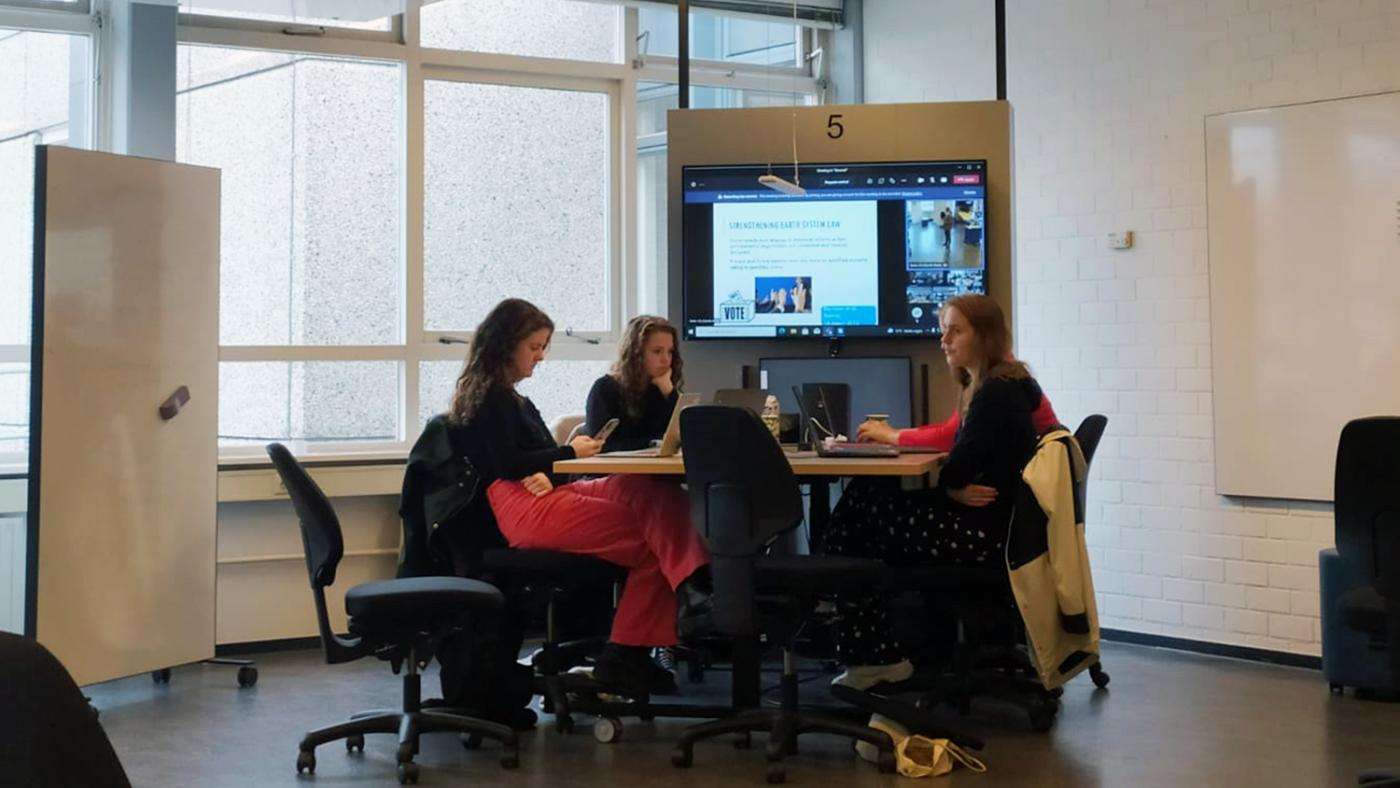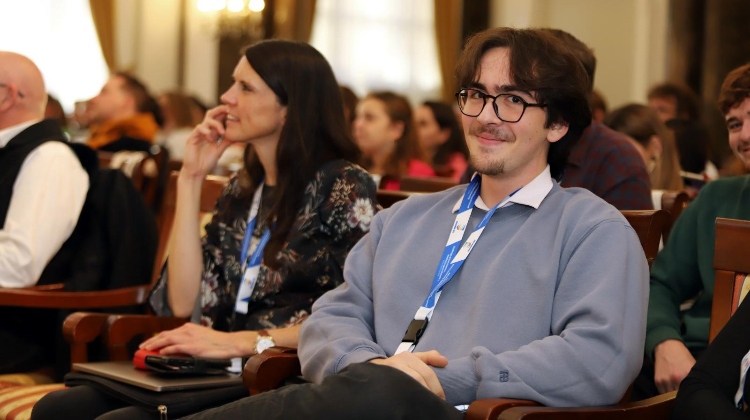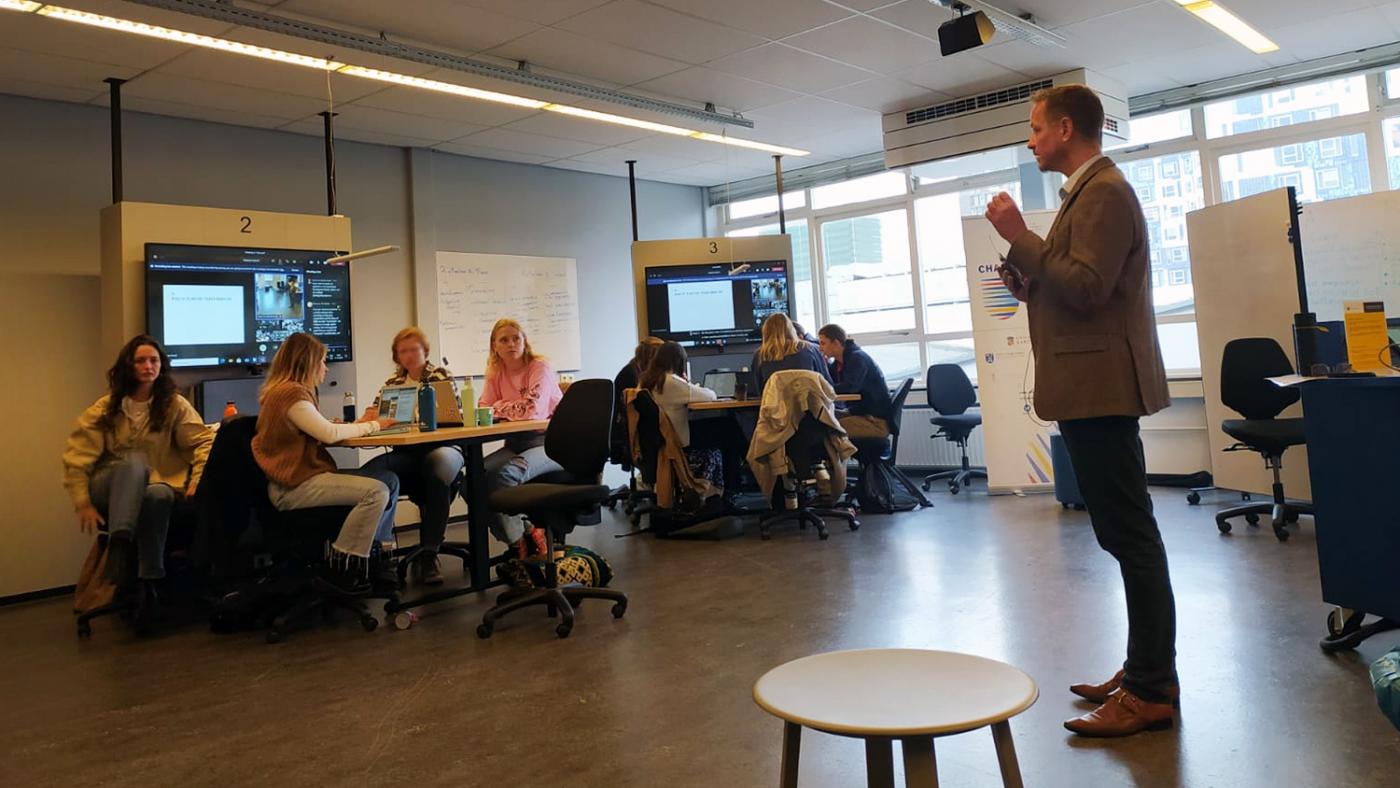Charm EU develops inclusivity plan
Ten more points in the admission process for students belonging to minority groups

Global Challenges for Sustainability, also known as Charm EU, is a joint Master’s programme ministered by a network of nine European universities. Students attend lectures in one of the universities, while classmates elsewhere connect to the same lecture online. The Master’s programme focuses on innovation and transdisciplinary research in the field of sustainability.
Inclusivity is part of the programme’s DNA, says Marjanneke Vijge, Academic Director of UU’s Charm EU team. So much so the programme has an Inclusiveness Team dedicated to countering structural barriers that keep certain groups – such as disabled people, people of colour, members of the LGBTQAI+ community, and migrants, to name but a few – from obtaining a university degree. The aim is to cultivate a diverse student body. The team is part of Charm EU’s Diversity, Equity & Inclusion (DEI) Office and is led by Assistant Professor Agnes Sarolta Fazekas-Vinkovits.
To achieve these two goals, the Inclusiveness Team has adopted a series of measures. Since 2020, one of these measures has been to give ten additional points to applicants who demonstrate that they belong to an underrepresented group. Koko Byalkov, a student member of the University Council who is also part of the 2024 Charm EU Student Council, explains that applicants are selected according to academic and social criteria, socio-economic status being one of them. Applicants are then given points according to each criterion. In this process, applicants from underrepresented groups can choose to indicate that they are part of that group, in which case they receive ten points in addition to those obtained through their academic and extracurricular activities.
Documentation is requested for justification, but other measures are in place too. The Inclusiveness Team also have what Vijge calls a “human-centred approach”, having video chats with the individuals aspiring to be admitted to the programme.
Other measures to ensure a diverse student body include financial grants to further support students facing economic hardship (for which the Dutch Minister of Education has granted Charm EU an annual amount of 250,000 euros for four years) and a “needs assessment” session to provide tailored support to students, such as transcripts of lectures and conferences for students who struggle to focus or hear.

Koko Byalkov participating in a meeting with the Charm EU Student Council. Photo: Gábor Rusznák
"It makes sense”
DUB talked to a few Charm EU students and they all welcome the measures. “When I first read about the ten points, I found it a bit odd, as it’s not very common for universities to do that,” says Charm EU student Alisia Gahabka. “But then I thought about it more and realised it makes sense because sustainability and climate change affect certain minority groups more, so they should receive an advantage to study.”
She doesn’t think the ten extra points are unfair to the other students. “We live in a patriarchal society full of bias and those extra points might help disadvantaged people. I know students who got the ten points, and I am happy to hear their perspectives on the programme”.
Koko agrees. “It’s not just a good idea, it’s a need to hear perspectives of different people about sustainability and climate change so that we can make sure that our plans are not going to disadvantage those who are affected the most”.

Individual learning styles
The importance of different perspectives in the classroom is personified in the figure of the head of the Inclusiveness Team, sociologist Agnes Sarolta Fazekas-Vinkovits, who has held the role since 2019. Agnes was born with shorter arms and brings her personal experiences, along with research and academic background on the topic, to the lecture hall. “I always show my arm at the start of lectures, so that new differently-abled students know they are understood in their experience.”
Fazekas-Vinkovits adds that the programme strives to be inclusive of all students’ needs in the classroom by following the principles of Universal Design for Learning (UDL), a movement which supports offering multiple means of engagement (to optimise choice and autonomy) and expression (through multiple media such as text, speech, drawing etc). This allows students to demonstrate their knowledge and participate in various ways that suit their learning styles, she explains. She quotes David H. Rose, a key figure in the UDL movement, who said: “Our brain is like our fingerprint.”
Measuring success
The work of Fazekas-Vinkovits and her team has not gone unnoticed. In 2021, Coface Families Europe, a network of family organisations promoting wellbeing and representing the interests of families, highlighted Charm EU's efforts to foster inclusion in a report about existing practices across Europe to sift towards fully inclusive societies. More recently, Charm EU was named one of the top 77 most innovative projects worldwide by the Zero Project, a global initiative promoting solutions for a more inclusive world.
The question is: how effective are these initiatives in fostering a diverse academic community where members of disenfranchised groups can thrive? Since 2023, the Charm EU Inclusiveness Team has worked on measuring the impact of their initiatives. This includes tracking how many students apply for the programme and receive financial support afterwards, and how many demonstrate eligibility for inclusion measures.
According to the Charm EU website, 10 percent of the student population belongs to groups that are traditionally at a high risk of exclusion from higher education on a European and global scale. Only 5 percent of the Charm EU student population receives the monetary grant.